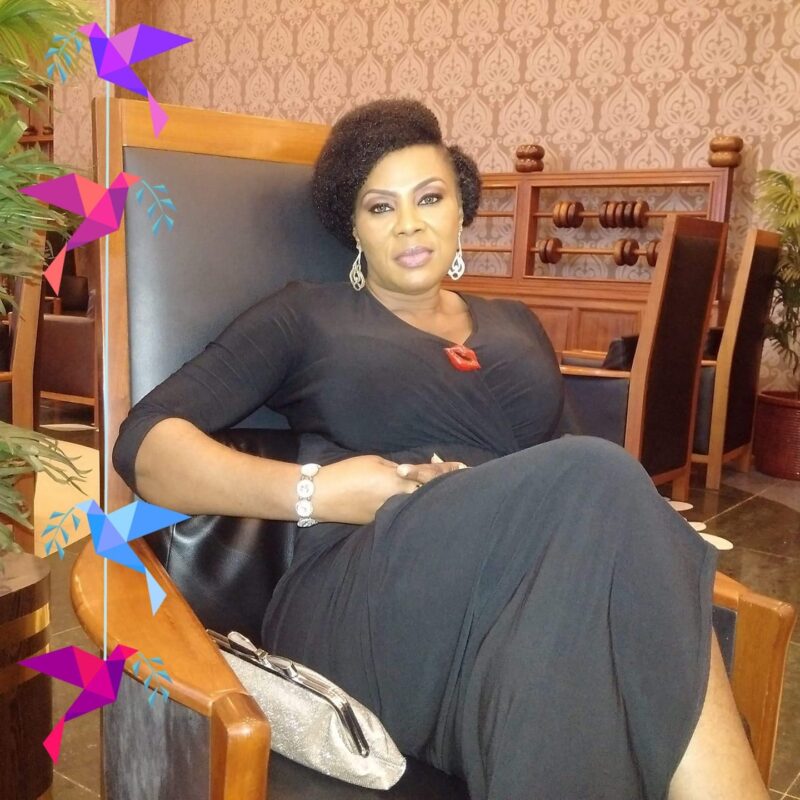National Issues
“No Retreat, No Surrender” For Nigerian Women As Gender Equality Bills Must Be Passed By The Lawmakers -By Sandra Ijeoma Okoye
Nigeria’s male-dominated parliament has always been against legislations that appear to give women equal rights as their male counterparts. Thus, it has remained fresh on the minds of Nigerians, especially the women, how members of the federal parliamentarians voted against different gender bills few weeks ago.

According to an African proverb, “The nursing mother that wickedly refused to breastfeed her baby in daytime will not sleep at night”.
Interpretatively put, the mother that denied her baby the rights of breastfeeding will end up waking up intermittently whenever her baby’s shriek, and consequently, end up not sleeping, and to her own detriment.
Without any scintilla of hyperbole, the foregoing unsettling situation finds expression in the current state where lawmakers have at each passing political dispensation thrown the consideration or passage of the Gender Equality Bills away with reckless abandon.
In fact, there is no denying the fact that Gender and Equal Opportunity Bills have been suffering setbacks at the Senate since 2010 when it was proposed. For instance, ostensibly rekindling the Gender Equality bill that was introduced into the Senate in March 2016, Biodun Olujimi (PDP, Ekiti South), in December last year, who is the Sponsorer of the bills was forced to soft-pedal by stepping down the bills after some senators raised concerns over possible infringement on Islamic morals.
Her decision to suspend consideration of the bills was sequel to a deliberation which lasted for over an hour. It was in fact the third time, in 2021, the consideration and passage of the Gender Equality bills was frustrated.
It would be recalled that the bills seek to guarantee the rights of women to equal opportunities in political appointment and employment, equal rights to inheritance for both male and female children; equal rights for women in marriage and divorce, equal access to education, property/land ownership and inheritance.
It also sought to protect the rights of widows; guarantee appropriate measures against gender discrimination in political and public life and prohibit violence against women.
The bills were rejected by some male lawmakers who argued that the Nigerian Constitution was clear on rights of citizens, including women.
Ms. Olujimi, however, reworked the bill and represented it to the Senate. And this time, it scaled second reading and was referred to the Senate committee on Judiciary, Human Rights and Legal Matters but no public hearing was held.
In November 2019, the bills were reintroduced.
Ms. Olujimi took time to highlight some provisions of the bills. She said the legislation seeks to eliminate all forms of discrimination against women.
“This bills seek to further strengthen section 42 of the constitution. They seek to eliminate gender-based violence. The bills were read for the first time in 2019,” she said.
“It will allow for the domestication of all forms of discrimination against women. It will provide for the equality of all persons. If enacted, it will prohibit all forms of discrimination against women and persons living with disabilities.
“The bill, when enacted, will support agencies to recognize and respond to modification of socio-cultural practices towards ensuring the rights of widows and widowers are recognized and protected. It will encourage women to aspire and attain their full potentials considering the fact that there are real walls of discrimination against women. And address equal opportunities of career choices and job security.”
It would be recalled that while Stella Oduah, Akon Eyankenyi and Istifanus Gyang spoke in support of the bill and encouraged other lawmakers to do so, Yusuf Yusuf and Aliyu Wamakko said otherwise.
Mr. Yusuf opposed the bill saying its provisions is against the socio-cultural practice of Islam.
“From an Islamic perspective which is a socio-cultural practice of Muslims…this aspect of it…by equating opportunities for women and men actually infringes with the provisions of the Quran and also the Bible.
“I will not support the passage of this unless the word “equal” is removed.
“If we have it as “Gender Opportunities Bill”, fine. But when you bring equality into it, it infringes into the practice of the Islamic religion.” Mr, Wamakko re-echoed Mr Yusuf’s point.
“When it comes to socio-cultural practices, it is wrong. If they say “equity”, it is okay. But equality, no.
“It infringes on the Islamic religion and for that reason, I don’t support this bill.”
Mrs. Olujimi offered to change the title of the bill to “Gender Equity Bill” to accommodate the concerns raised by the duo.
Afterwards, other senators including Ovie Omo-Agege and James Manager advised that the bill be read for the second time and issues raised will be addressed at the committee and public hearing states.
“From the feelers that I’m getting the chambers, it appears the consultation has not gone far enough. I want to plead that this bill should not be killed here but should be allowed to go for public hearing so if there is anything that Senator Olujimi missed, it will be addressed,” Mr. Omo-Agege, the deputy senate president, said.
But Mr. Yusuf opposed this suggestion. He said he was yet to see the complete bill and would not support it being read for the second time.
At this point, the Senate President, advised that the sponsor step down the bill and “consult further” with the senators who have raised concerns – a point which was supported by senators Remi Tinubu, Abdullahi Adamu and Bala Na’Allah.
Ms. Olujimi thereafter agreed to step down the bill for further consultations.
The clamour for gender equality has been on for years with many women and civic groups advocating change, parity, an end to negative stereotypes and gender-based violence.
In a similar vein, an opportunity had by the lawmakers under the hashtag #IWD2022 was unarguably not seized by the lawmakers; both in the House of Representatives and the Senate as they failed to break bias since they conspicuously frustrated moves for gender equality and affirmative action.
Nigeria’s male-dominated parliament has always been against legislations that appear to give women equal rights as their male counterparts. Thus, it has remained fresh on the minds of Nigerians, especially the women, how members of the federal parliamentarians voted against different gender bills few weeks ago.
I must confess at this juncture that I was neither moved nor perturbed that the five gender bills were unjustifiably thrown away by the lawmakers as I understand the fact that in pursuit of a salient cause for the benefit of the people, in this case, for women, that it is a war of “No retreat, No surrender”. Against the foregoing backdrop, I am in this context urging my fellow women to keep fighting, and advise them that the bills should be represented to the lawmakers, even as I am positive that it is an advocacy that demands that Nigerian women should continue to push until the five bills are passed into laws.










